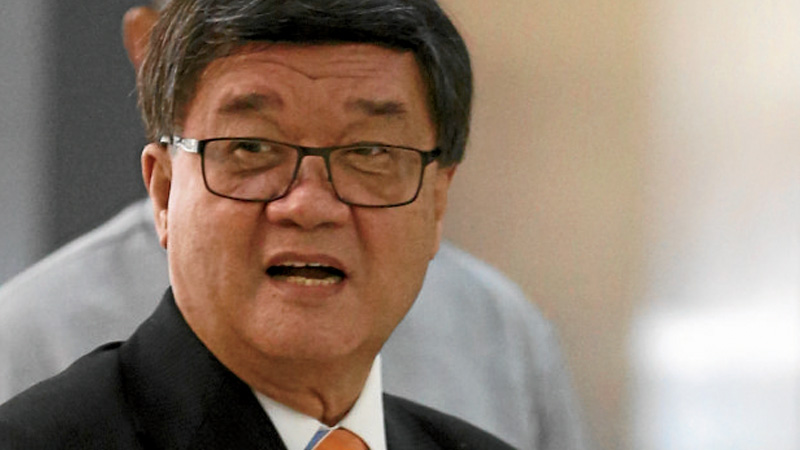A police officer allegedly involved in the kidnapping of a South Korean has eschewed the security of his peers and instead chose to surrender to the National Bureau of Investigation.
Justice Secretary Vitaliano Aguirre II on Monday announced the surrender of SPO3 Ricky Sta. Isabel even as he sought to assure the wife of abducted South Korean Jee Ick-joo that authorities would continue to search for her husband, who was kidnapped from his home on Oct. 18.
Aguirre said Sta. Isabel sought “voluntary custody” under the NBI after the Philippine National Police Anti-Kidnapping Group identified him as one of eight suspects who picked up Jee in Angeles City, Pampanga province, in the guise of the police’s “tokhang,” or knock and plead, operations covering drug suspects.
In a brief interview with reporters, Sta. Isabel said he felt “much safer” with the NBI.
NBI Spokesperson Nicanor Suarez reported that Sta. Isabel gave himself up on Sunday.
Suarez said he was still waiting for instructions on whether to turn over Sta. Isabel to the PNP, which ordered a manhunt against him after the Inquirer reported his case last week.
Aguirre assigned a prosecution lawyer, Loverhette Jeffrey Villordon, to look into the Jee abduction in place of Assistant State Prosecutor Hjalmar Quintana, who was forced to inhibit himself from the case after reportedly being accused of bias against Sta. Isabel and his team.
Aguirre said he had yet to talk to Quintana about why he quit from the case of kidnapping for ransom and serious illegal detention.
‘I want to strangle him’
PNP Director General Ronald dela Rosa told reporters on Monday that a retired policeman allegedly involved in the kidnapping of Jee had fled to Canada.
He said the retired policeman, whom he did not identify, was an incumbent barangay chair who was also a “high-value target” in the PNP’s war on drugs.
Six others involved in the abduction have been identified.
Sta. Isabel was earlier named by Jee’s house help.
Dela Rosa said Sta. Isabel’s car was used in the abduction and he also withdrew money from Jee’s ATM bank account.
He said the PNP Anti-Illegal Drugs Group (AIDG) also had custody of two more antinarcotics policemen who both claimed they were duped by Sta. Isabel into believing the operation to arrest Jee in connection with illegal drugs was legitimate.
“They (two policemen) are the least guilty, they were tricked into believing they were joining a legitimate operation. We can make them state witnesses,” he said.
Airtight case
Dela Rosa welcomed Sta. Isabel’s surrender to the NBI. He added that Sta. Isabel did not surrender to the PNP because he knew that the PNP already had built a “really solid” and “airtight” case against him.
Dela Rosa added that he wanted to “strangle” Sta. Isabel for “dirtying” the PNP image. He said policemen involved in kidnapping for ransom should all be killed.
The PNP chief also said it was possible that Sta. Isabel had a “padrino,” or protector, who is one of the so-called narcogenerals disclosed by the President.
The protector was the one who facilitated Sta. Isabel’s entry to AIDG.
The other suspects included another Korean with the surname “Tae” and the son of the owner of the car rental firm whose vehicle was also used in the abduction.
Dela Rosa did not elaborate, saying he could not talk about ongoing operations.
He also appealed to the public and the media not to use “tokhang-for-ransom cops” to refer to the policemen engaged in abducting and extorting from rich people that they arrest for supposed drug offenses.
“Just call them kidnappers for ransom. We get hurt when you call them tokhang-for-ransom cops. Tokhang was our successful war on drugs; these policemen are just using fake warrants to arrest and extort from foreigners,” Dela Rosa said.
Oplan Tokhang, launched on July 1 last year, refers to police visitations at the houses of suspected drug dealers and dependents and appealing to them to surrender and mend their ways.
